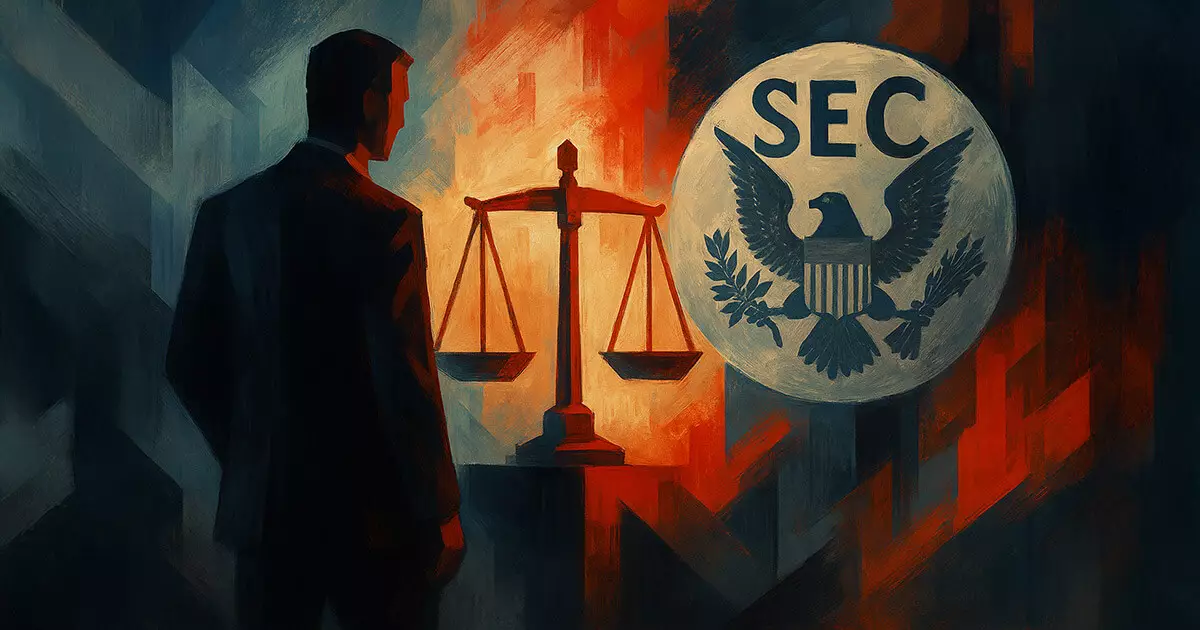In today’s financial landscape, the allure of extraordinary returns often blinds consumers to lurking peril. The recent case involving First Liberty Building & Loan and its founder, Edwin Frost, underscores a harsh reality: promises of high-yield investments can mask devastating fraud. The firm’s claim to offer up to 18% returns through seemingly legitimate short-term bridge loans effortlessly captivated hundreds of investors. Yet behind this façade lay a manipulative web of deceit designed to siphon off funds and sustain an illusion of prosperity. As defenders of financial integrity, we must recognize that devising schemes based on over-inflated promises is not only unethical but also inherently unstable. No matter how convincing the rhetoric or how persistent the charm offensive, investors should question any proposition that sounds too good to be true.
The Predatory Nature of Schemes Cloaked in Legitimacy
Ponzi schemes like the one orchestrated by Frost are arguably the most predatory form of financial fraud. They thrive on the naivety or greed of investors, exploiting trust fostered through emotional appeals and selective information. Citizens are often led to believe that their investments support real businesses and genuine growth, but in reality, their money is frequently used for personal gain by schemers cloaked in the guise of success. The case at hand reveals how Frost diverted investor funds to fund personal luxuries, political contributions, and even rare collectibles, all while maintaining the appearance of a legitimate operation. This reveals a fundamental flaw in trusting opaque financial entities that operate behind a veneer of professionalism. Instead of fostering prosperity, these schemes ultimately erode financial security and damage community trust.
The Political and Social Ramifications of Financial Deception
What makes this case particularly egregious is Frost’s prominent standing within Georgia’s political and social elite. His political donations, which totaled over half a million dollars, point to a darker intersection between wealth, influence, and corruption. When a person with such connections manipulates investors and misappropriates their hard-earned savings, the fallout extends beyond individual loss, threatening the credibility of institutions and the integrity of the political networks they interact with. This incident underscores the danger of allowing financial schemes to become entangled with social and political capital, which can distort justice and accountability. Citizens who uphold conservative values—focused on personal responsibility, fiscal discipline, and rule of law—must view cases like this as cautionary tales about unchecked influence and regulatory complacency.
Regulatory Vigilance and the Need for Personal Due Diligence
The SEC’s swift action—filing civil charges, seeking asset freezes, and demanding disgorgement—reflects a necessary response to protect the vulnerable. Yet, these efforts serve as a stark reminder that regulation alone cannot prevent every fraudulent scheme. The responsibility ultimately rests with investors to scrutinize and question investment opportunities, especially those that promise sky-high returns in a short timeframe. Persistence of these schemes indicates a fundamental flaw: the allure of immediate gain often overrides rational skepticism. The failure of regulatory bodies to fully prevent such schemes highlights the importance of cultivating a climate of cautious optimism—an environment where due diligence and skepticism are valued over blind trust. For broader society, this case must serve as a wake-up call to scrutinize who we trust with our money and to demand transparency at every turn.
The Broader Implications for a Center-Right Approach
From a center-right perspective, fostering an environment of responsible capitalism is paramount. While market freedom is essential for innovation and growth, it must be balanced by a robust framework that deters fraud and promotes ethical conduct. Encouraging entrepreneurial ventures and investments requires not just deregulation but also intelligent oversight—preventing predators from exploiting systemic vulnerabilities. Politicians and community leaders with conservative leaning should advocate for policies that bolster transparency, enforce vigilant oversight, and educate voters on financial literacy. Furthermore, there’s a need to recognize that deregulation does not mean deregulation of morality; transparency and accountability must be integral to a free-market ethos. By nurturing confidence in legitimate financial institutions, society can foster sustainable growth while rooting out the parasitic predators that tarnish the reputation of capitalism itself.
In summary, the Frost case exemplifies how greed, corruption, and the erosion of ethical standards threaten the very foundation of responsible investing. It challenges us to reexamine how regulatory frameworks function and how individuals approach investment opportunities. Trust, after all, is fragile—once broken by schemes cloaked in false legitimacy, it takes years to rebuild. A resilient financial system demands vigilance, discernment, and a collective commitment to integrity.


Leave a Reply